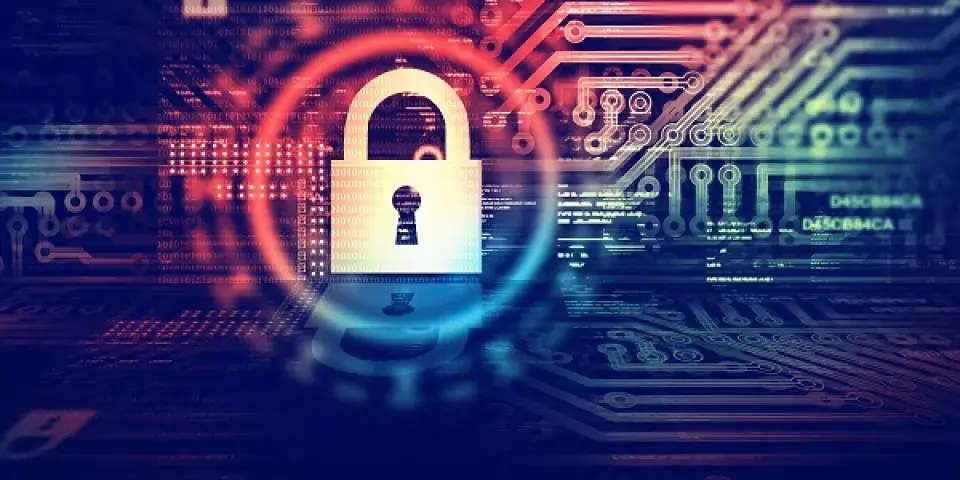In today’s digitally interconnected world, IT network security has become paramount for individuals, businesses, and governments alike. The rapid advancement of technology has brought about countless opportunities, but it has also exposed us to various cyber threats.
In this article, we will delve into the importance of IT network security, exploring five essential points that highlight its significance in safeguarding our digital assets and privacy.

Table of Contents
5. Essential Points for IT Network Security
1. Protection Against Cyber Threats
In today’s interconnected world, cyber threats have become increasingly sophisticated and pervasive. Malicious actors constantly devise new ways to infiltrate networks and compromise data. It’s not just about isolated incidents; it’s a constant battle. IT network security employs a multifaceted approach to combat these threats.
A key component of IT network security is the implementation of robust firewalls and intrusion detection systems. Firewalls act as gatekeepers, monitoring incoming and outgoing traffic, and blocking unauthorized access. Intrusion detection systems analyze network traffic for suspicious activities and patterns, alerting administrators to potential threats in real-time.
Additionally, antivirus software and anti-malware programs are integral to network security. These tools scan files and applications for known malicious code, preventing malware from infecting devices and spreading through the network. Regular updates and signature database refreshes are essential to keep these tools effective.
2. Safeguarding Sensitive Information
In an era when data is often referred to as the “new oil,” safeguarding sensitive information is paramount. IT network security encompasses a range of measures to achieve this, starting with encryption. Encryption ensures that data transmitted over networks is encoded, making it unreadable to unauthorized parties. Even if intercepted, the data remains secure.
Furthermore, strong authentication protocols are crucial. This includes multi-factor authentication (MFA), which requires users to provide multiple forms of identification before granting access. MFA adds an extra layer of security beyond simple username and password combinations, making it significantly more challenging for unauthorized users to gain access.
Access controls are another vital element. They dictate who can access specific data and resources within a network. Role-based access control (RBAC) assigns permissions based on job roles, ensuring that users only have access to the resources necessary for their tasks.
3. Business Continuity and Productivity
The importance of IT network security for businesses extends far beyond data protection. It directly impacts business continuity and productivity. Consider a scenario where a cyberattack disrupts a company’s operations. Downtime can result in significant financial losses and damage to the company’s reputation.
To mitigate such risks, businesses implement disaster recovery and business continuity plans. These plans involve creating redundant systems and data backups. In the event of a cyber incident, operations can swiftly switch to these backups, minimizing downtime.
Moreover, IT network security plays a role in ensuring that employees can work efficiently. With secure access to data and applications, employees can perform their tasks without interruption, regardless of their location. This is especially crucial in today’s remote and hybrid work environments.

4. Compliance with Regulations
Compliance with data protection regulations is a critical aspect of IT network security, particularly for organizations handling sensitive data. Regulations like GDPR in Europe and HIPAA in the United States have stringent requirements for data security and privacy.
To comply with these regulations, organizations must implement specific security measures, such as data encryption, regular security audits, and breach notification procedures. Failure to adhere to these regulations can result in substantial fines and legal consequences. Thus, IT network security becomes not only a necessity for data protection but also a legal obligation.
5. Mitigating Evolving Threats
The landscape of cyber threats is in a constant state of flux. Cybercriminals continually adapt and innovate, creating new challenges for IT network security. To stay ahead, security professionals adopt proactive measures.
Regular software updates and patch management are crucial. Vulnerabilities in software and operating systems are prime targets for exploitation. By promptly applying patches and updates, organizations can close security gaps before they can be exploited by malicious actors.
Threat intelligence and monitoring are also vital. Staying informed about emerging threats and vulnerabilities allows organizations to adjust their security strategies accordingly. Artificial intelligence and machine learning are increasingly used to analyze vast amounts of data and identify anomalous patterns that might indicate a security breach.
The Role of IT Network Security in Everyday Life
Beyond businesses, IT network security impacts individuals on a daily basis. Consider the devices we use, the social networks we engage with, and the e-commerce transactions we conduct. All of these activities rely on secure networks to protect our personal information and financial assets.
For example, when you access your online banking account, IT network security ensures that your login credentials are encrypted and transmitted securely. When you make an online purchase, your payment information is safeguarded from potential cyberattacks. Even simple acts like sending an email or browsing the internet involve the protection of sensitive data through secure network connections
The Future of IT Network Security
As technology continues to advance, the importance of IT network security will only grow. The emergence of the Internet of Things (IoT), artificial intelligence (AI), and cloud computing present new challenges and opportunities for network security. With more devices connected to networks, the attack surface expands, making robust security measures even more critical.
In the future, we can expect to see increased emphasis on AI-driven security solutions that can detect and respond to threats in real-time. Moreover, the integration of blockchain technology is likely to play a role in enhancing the security of digital transactions and data storage.
Conclusion
In conclusion, the importance of IT network security cannot be overstated. It is a fundamental aspect of our digital lives, protecting our personal information, financial assets, and critical business data. As cyber threats continue to evolve, so must our security measures. By recognizing the significance of IT network security and taking proactive steps to enhance it, individuals and organizations can navigate the digital landscape with confidence, knowing that their networks are resilient and protected against an ever-changing threat landscape.
Investing in IT network security is not an option; it’s a necessity in the digital age. It’s a commitment to safeguarding our digital world, one that is essential for our privacy, security, and the continuity of our businesses and daily lives.
Inspiring Bible Verse
Romans 8:31 "If God is for us, who can stand against us."
God will be the one who will do the attack amongst your enemy. You no longer need to be astrayed or distracted, for God will be your guard that will defend your heart, mind, body, and soul from the wickedness of this world. Be strong my fellow brethren, we have a big God God the Father and God the Son Jesus, whose footstool is the earth.



